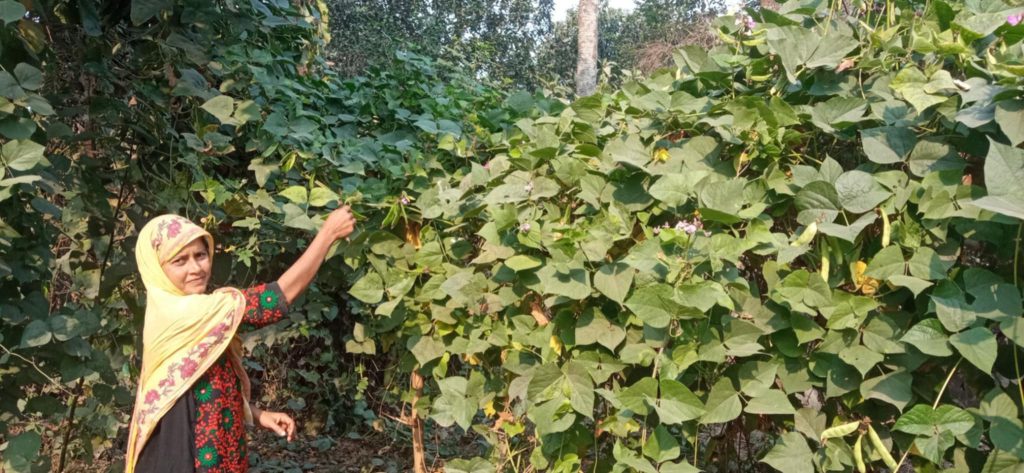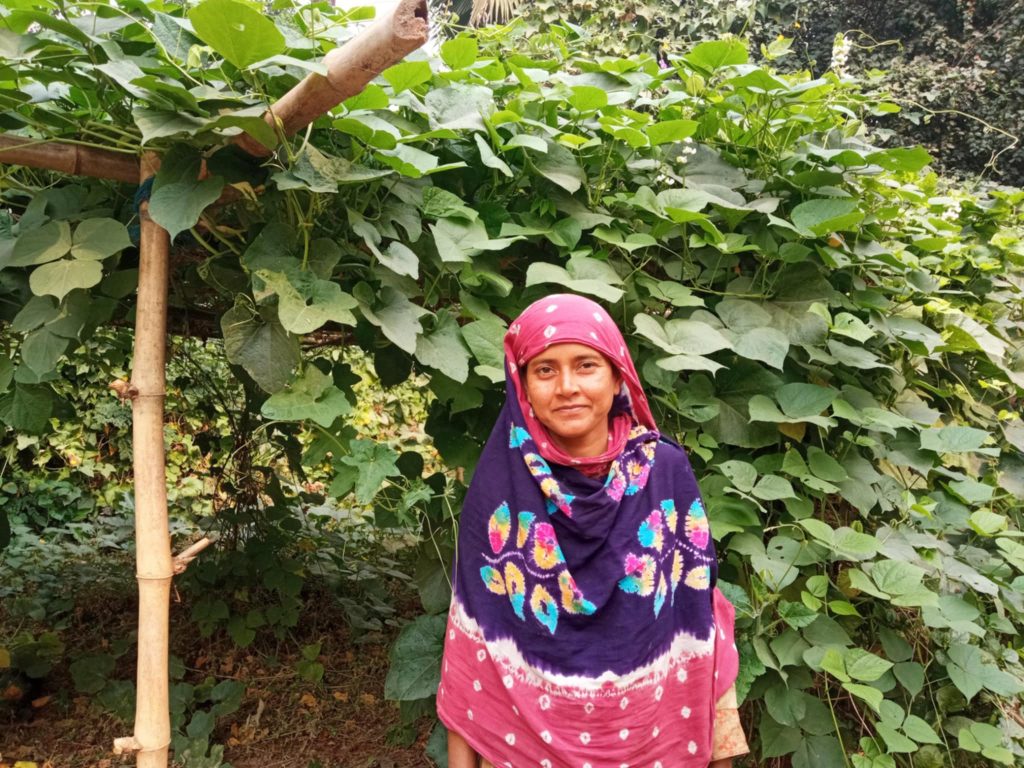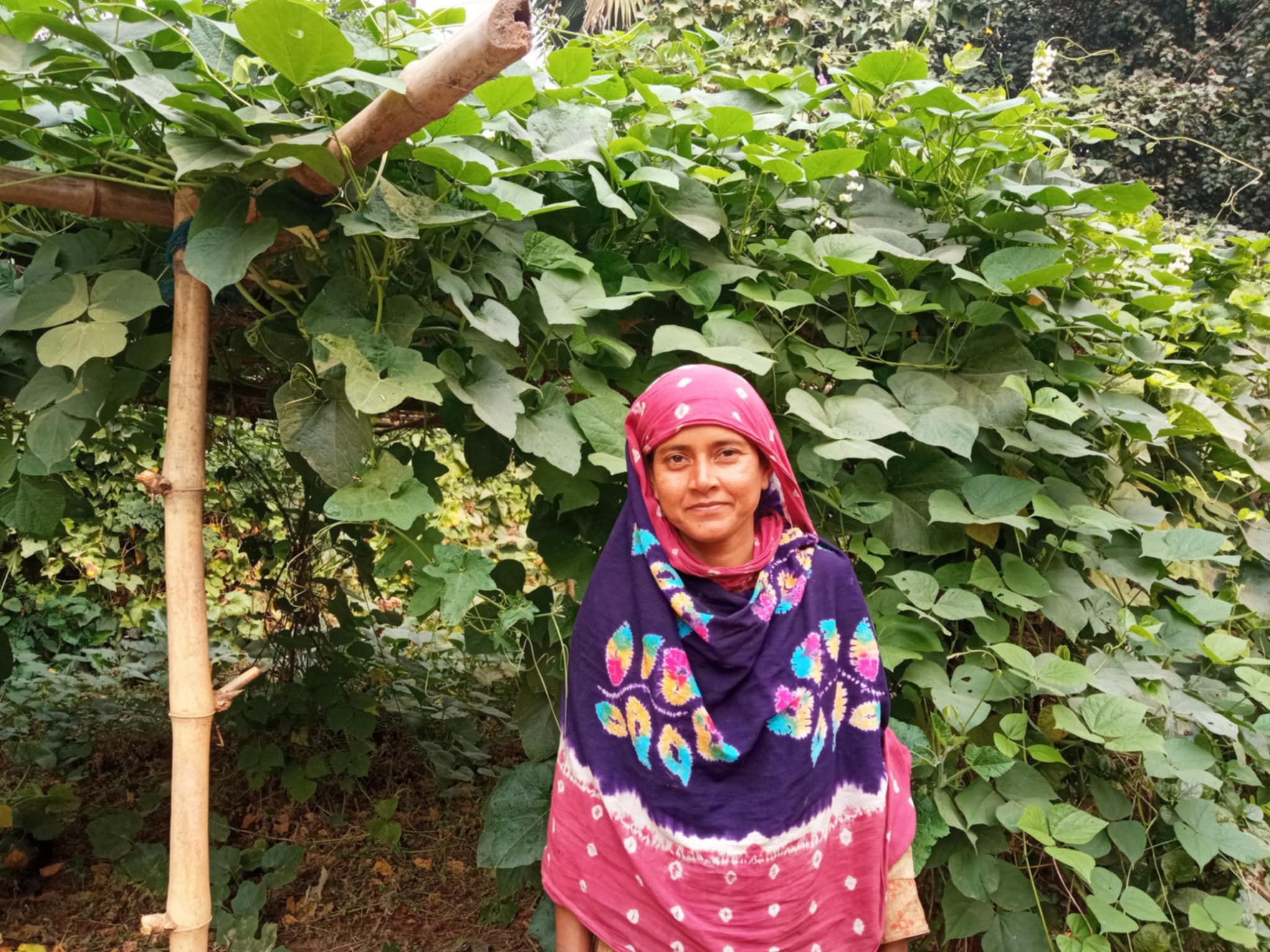By Uttam Kumar, Tanore, Rajshahi
Sumi Begum hails from Selampur village, Ward No. 5 of Talanda Union in Tanore Upazila, Rajshahi District. The only child of her parents, she married in 2000 and welcomed a daughter in 2002, bringing joy and light to her home. From 2002 to 2005, her family life was peaceful. However, due to personal reasons, she divorced in 2005 and returned to her parents’ home.

With the responsibility of caring for her elderly parents and young daughter resting solely on her shoulders, she chose not to remarry, prioritizing her child’s future. From 2005 onward, Sumi Begum’s life became a story of resilience and struggle. Apart from her father’s 33 decimals of land, she had no other assets or steady income.
Determined to provide for her family, she first learned tailoring and purchased her own sewing machine. She began earning by sewing clothes for local women. At the same time, she cultivated rice and seasonal crops on her small plot, handling everything herself from preparing the land and sowing to harvesting. She balanced this physically demanding work with caring for her aging parents and her child, demonstrating remarkable perseverance.
In 2015, she connected with the NGO BARCIK. Inspired by its support, she formed and now leads the “Selampur Women’s Development Group.” Through this group, local women have implemented a variety of initiatives to promote empowerment and community development, including monthly meetings, safe homestead vegetable gardening, seed saving and exchange, tree planting, and campaigns to prevent child marriage.
Sumi Begum not only earns through tailoring but also freely trains disadvantaged women in her and nearby villages in sewing skills. Beside her house, she maintains a thriving vegetable plot where she grows safe, preferred varieties. She teaches other women her methods, using no chemical fertilizers focusing only her own vermicompost. She also learned from BARCIK how to make natural pesticides, which she uses in her garden.

She carefully conserves all the seeds needed for her vegetable cultivation, maintaining her own seed bank. She uses them herself and exchanges them with neighbors on the condition that seeds must be returned after use.
Under Sumi Begum’s leadership, a strong sense of unity has developed among the women of Selampur village. Thanks to this collective effort, nearly every household has transformed into a “Shatobari” model, producing safe, nutritious, and diverse food. Meanwhile, Sumi Begum and her group continue to raise their voices for women’s empowerment and rights at both the union and upazila levels.

